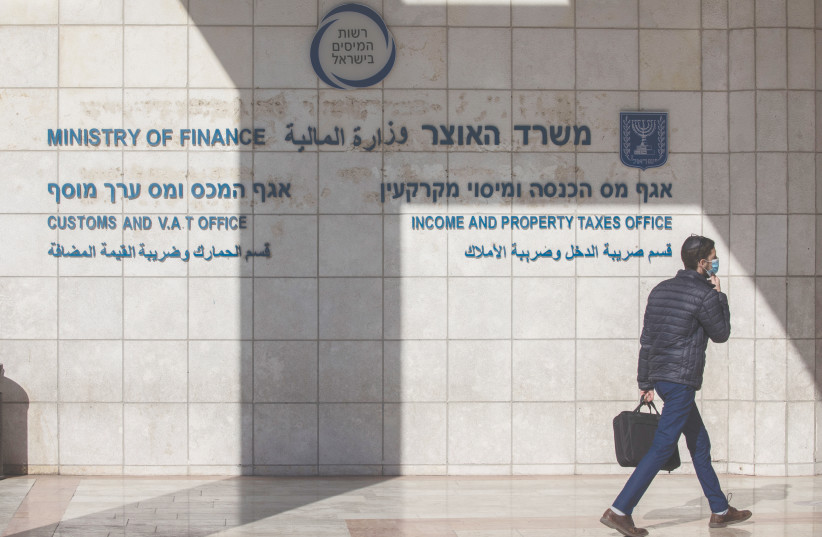The government published a bill on September 6 that aims to tighten up Israeli rules for taxing offshore-controlled foreign companies (CFCs) and foreign professional companies (FPCs). The Israeli proposals have echoes of US GILTI (global intangible low-taxed income) rules in the US.
Israeli CFC rules aim to tax Israeli resident shareholders on deemed dividends regarding any 10%-or-more share of undistributed profits of certain foreign companies. The proposal is to bring the profits of more foreign companies into the Israeli net.
How will foreign companies be taxed?
Israeli CFC rules aim to tax Israeli resident shareholders on deemed dividends regarding their share (if 10% or more) of undistributed profits of foreign companies (typically offshore companies) that: (1) derive over 50% of their revenues or profits from passive sources, (2) over 50% of their shareholders are Israeli residents, or over 40% of their shareholders are Israeli residents and over 50% are Israeli and related foreign shareholders (e.g. siblings residing in Israel and abroad). Undistributed passive profits of a CFC taxed abroad at 15% or less are taxable in Israel as a deemed dividend at rates up to 33%.
Most countries have similar rules to tax passive income of CFCs. But GILTI expanded the US tax net to include active as well as passive income of CFCs. Now Israel is proposing to partly follow the US example.
Instead of targeting passive income, the bill proposes to target foreign “mobile income” of a CFC. Mobile income would include the following income from related parties, subject to various conditions: income from financial instruments; consideration from the sale of intangible assets held over a year by a business; insurance premiums or payouts; royalties or intangible asset usage fees unless FAR principles are upheld and the company developed the asset or bought it from a third party; interest and forex income of a business nature received from an Israeli resident or in certain other apparently abusive cases; income of a business where FAR (functions, assets, risks) principles are not upheld i.e. the business does not bear risks involved in generating income, or has no rights to assets used, or does not carry out the material functions that contribute to generating the income.

The minimum percentage of passive/mobile revenues would drop to one third instead of 50%.
The minimum Israeli ownership of a CFC would drop to over 30% (from 50%) or as low as 25% if 30% is held together with related foreign residents.
New and senior returning residents (“olim”) should continue to be exempt from CFC/FPC rules for 10 years. But various definitions would be tightened up to prevent new immigrants from being “borrowed” to help other Israelis out of a CFC/FPC tax liability.
Assuming these proposals are enacted, they will take effect after January 1 of the next tax year.
The proposals openly admit they do not go as far as embracing OECD recommendations known as Pillar 2. Israel is an OECD member. Pillar 2 is the OECD initiative calling for a 15% minimum rate of corporate income tax. Pillar 2 is expected to be adopted in 2024 or 2025 in around 140 countries. The standard rate of company tax in Israel is 23% but Pillar 2 may affect Israeli companies investing in offshore CFCs and foreign multinationals investing in Israeli-privileged enterprises that pay 5% – 7.5% company tax.
If Israel fails to adopt Pillar 2, its share of the international tax cake will be immediately re-allocated to other countries. This is because the OECD has two cake re-allocation rules: (1) UTPR Undertaxed profits rule, (2) STTR-Subject to Tax Rule. Double taxation is also possible.
The Israeli government should also take on board the OECD’s detailed criteria for upholding FAR in the hi-tech sector regarding DEMPE. DEMPE stands for Development, Enhancement, Maintenance, Protection, and Exploitation.
In short, the Israeli government’s proposals are already obsolete...
It remains to be seen what will finally be enacted and when. Financial, insurance, and e-commerce groups, among others, may be impacted.
Taxable deemed dividends are also possible under separate rules relating to foreign professional companies (FPCs), mainly offshore service companies. Care is needed regarding the possible overlap of CFC and CPC rules.
There are separate proposals to tighten up Israeli fiscal residency rules and Israeli foreign tax credit rules.
Wishing readers well over the fast.
As always, consult experienced professional advisers in each country at an early stage in specific cases.
leon@hcat.co
